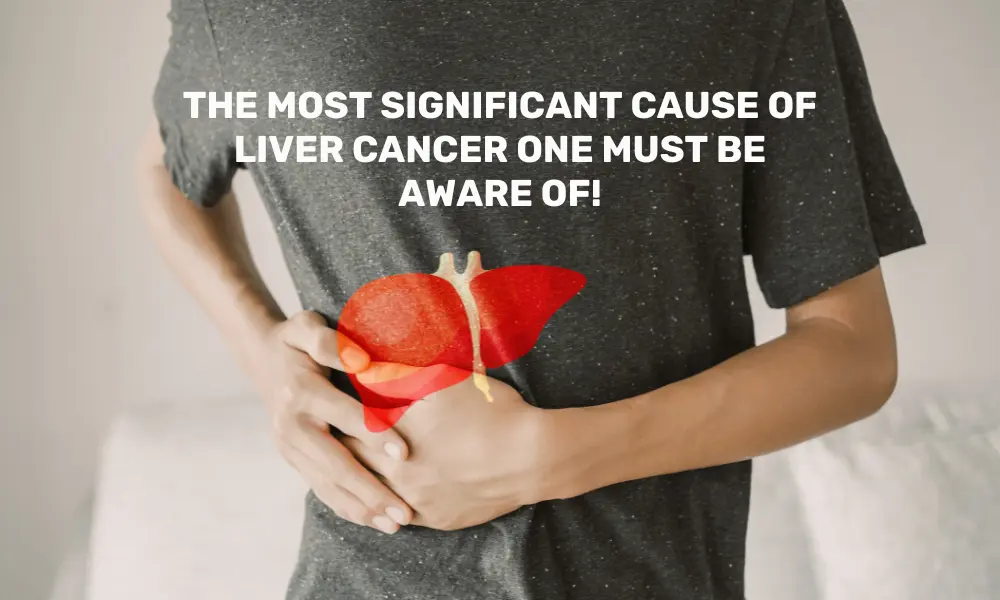Apart from alcohol being the primary cause of liver cancer, obesity has been identified as the most significant contributing factor to Liver cancer.
Obesity is an excessive build-up of body fat, especially in our internal organs, which is considered fatal for our health. A body mass index of 30 or above indicates obesity in individuals. According to the World Health Organization, in past three to four decades, obesity has tripled since and has reached a epidemic state world-wide.
Apart from numerous health issues linked to obesity, its connection to liver cancer is observed as the most serious side effect that needs urgent attention.
Factors Causing Obesity
There are several factors that may cause obesity in individuals.
-
Environmental, behavioral, and genetic factors
-
Sedentary lifestyles and reduced activity levels during the day
-
Poor diets that include large intakes of calories, processed food, added sugar, carbohydrates, and unhealthy fats
-
Psychological issues and excessive stress
-
Sleep deprivation
-
Effect of specific drugs may also cause obesity
-
Socioeconomic factors
It is vital to identify and manage the factors causing obesity in individuals before it leads to the development of chronic disease.
Link between Obesity & Cancer
There is a complex relationship between obesity and cancer that involves a number of biological processes. Chronic inflammation caused by obesity creates an ideal environment for the development of cancer. Further, it raises insulin and insulin-like growth factor (IGF) levels, which can both encourage the growth of cancer cells.
Excess estrogen produced by fat tissue (adipose) has been associated with a higher risk of several cancers. There is cause for concern over the link between obesity and liver cancer. The liver has an important role in metabolism and is greatly impacted by excess body fat.
Overweight people frequently have non-alcoholic fatty liver disease (NAFLD), which can escalate to non-alcoholic steatohepatitis (NASH), an inflammatory liver disease that can cause liver fibrosis, cirrhosis, and ultimately, liver cancer. The risk of liver cancer in obese people is twice as high as that of healthy-weight people.
Early warning signs of Liver Cancer
Early warning signs or symptoms of liver cancer can be subdued and often go unnoticed until the disease is advanced. Symptoms may include:
-
Unexplained weight loss
-
Loss of appetite
-
Upper abdominal pain
-
Nausea and vomiting
-
General weakness and fatigue
-
Enlarged liver
-
Yellowing of the skin and eyes (jaundice)
In addition to the above signs and symptoms, one must undertake regular monitoring of one’s health and consult a doctor, as this helps in early detection, especially for those who are overweight or obese.
Prevention and Management
People who are overweight or obese can prevent liver cancer by adopting multiple strategies that emphasize improving general health and managing weight. These may include:
-
Getting regular exercise
-
Eating a balanced diet full of fiber, fresh fruits, vegetables, and whole grains
-
Limiting processed and sugary foods
Lifestyle changes are highly important for individuals who have already been diagnosed with NAFLD or NASH to stop the disease’s progression. Regular screenings and liver function testing are also suggested for early detection and treatment.
The Bottom line
Due to the linkage between obesity and certain diseases like liver cancer, it is critical to manage obesity. Maintaining a healthy weight has numerous benefits. Like an ideal weight, individuals are active, full of energy, healthier, and less likely to be sick. Hence, let’s spread the word and get extra weight to stay fit and away from diseases.





